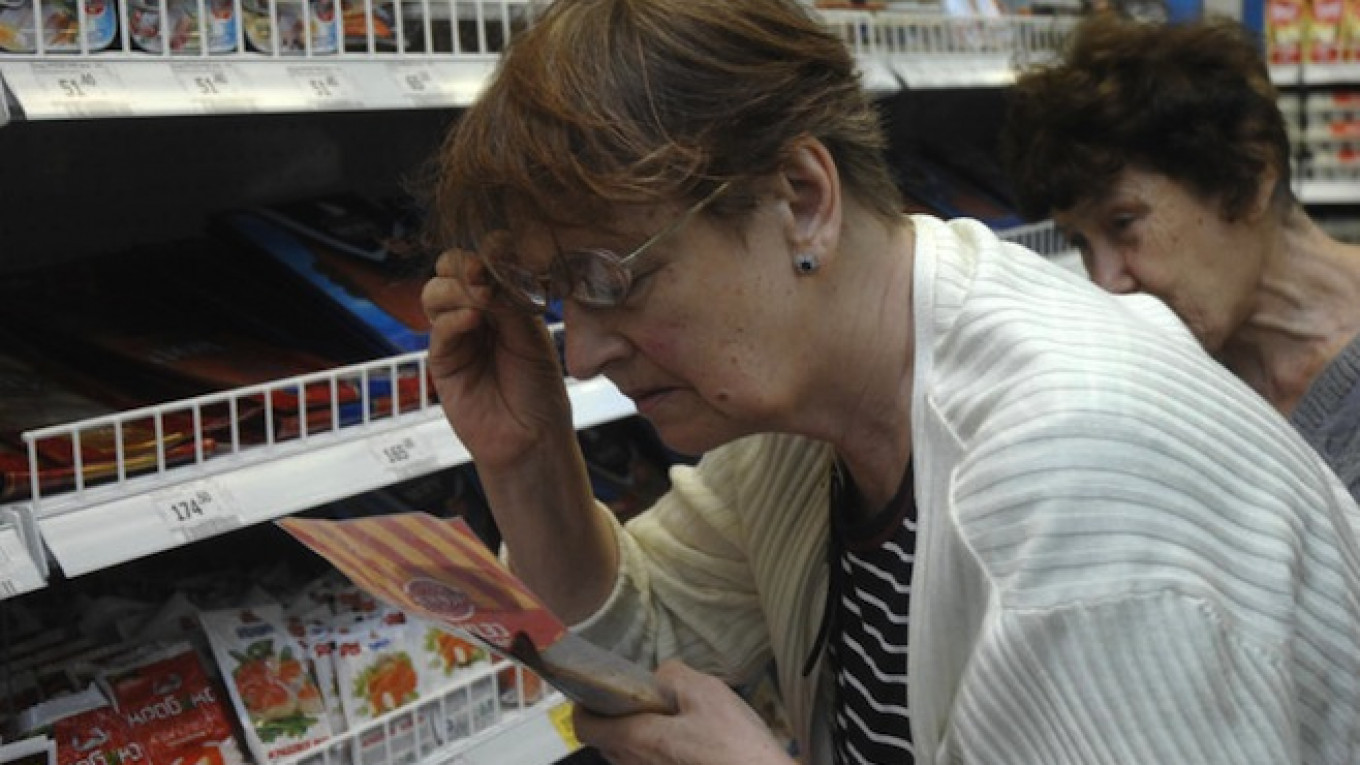Russia's inflation hit 15 percent in January, official data showed Thursday, underscoring the growing economic pain from sliding oil prices and Western sanctions linked to the Ukraine conflict.
Inflation has been shooting up in recent months as a result of a slide in the ruble, which has made imports dearer, as well as restrictions imposed on many food imports from the West in retaliation for the sanctions.
"We think the big jump in import prices as a result of the plunge in the ruble may now have happened," Liza Ermolenko, emerging markets economist at Capital Economics, said in a note. "But the lagged effects will continue to feed through over the coming months and could push inflation to around 17.5 percent or so in Q2."
The surge in inflation is embarrassing for the Central Bank, coming just days after it unexpectedly cut its main lending rate to 17 percent from 15 percent, prompting many analysts to warn that it was taking risks with inflation.
The bank's governor, Elvira Nabiullina, on Tuesday defended the cut by saying that real interest rates — the difference between nominal rates and inflation — remained positive.
That claim has now been quickly proved wrong.
"Inflation is at the level of rates, which is very risky … In theory, they need to raise rates," said Vladimir Osakovsky, Russia economist at Bank of America Merrill Lynch. "The decision of the Central Bank looks, to put it mildly, premature."
Russian officials have forecast that inflation will reach 15-17 percent in the coming months, but the speed of the increase comes as a surprise. A month earlier, inflation was running at 11.4 percent.
Analysts polled at the end of last month predicted that inflation would reach 13.3 percent in January, with an increase of 2.6 percent month-on-month.
Analysts at Alfa Bank predicted in a note that inflation would stay in the 15-16 percent range until May, adding: "In such an environment, another rate cut should be seen as a policy deviation from the inflation targeting priority."
The Economic Development Ministry revised its forecasts at the end of January to say inflation would end 2015 at 12 percent, higher than last year.
A Message from The Moscow Times:
Dear readers,
We are facing unprecedented challenges. Russia's Prosecutor General's Office has designated The Moscow Times as an "undesirable" organization, criminalizing our work and putting our staff at risk of prosecution. This follows our earlier unjust labeling as a "foreign agent."
These actions are direct attempts to silence independent journalism in Russia. The authorities claim our work "discredits the decisions of the Russian leadership." We see things differently: we strive to provide accurate, unbiased reporting on Russia.
We, the journalists of The Moscow Times, refuse to be silenced. But to continue our work, we need your help.
Your support, no matter how small, makes a world of difference. If you can, please support us monthly starting from just $2. It's quick to set up, and every contribution makes a significant impact.
By supporting The Moscow Times, you're defending open, independent journalism in the face of repression. Thank you for standing with us.
Remind me later.






